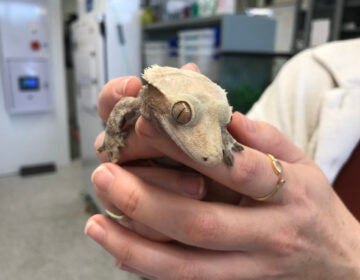The use of chimpanzees in research
ListenHour 2

The United States is only one of two countries still using chimpanzees in biomedical research. There are over a 1000 chimpanzees kept in laboratories in the United States. Now a bill in Congress, the Great Ape Protection and Cost Savings Act, wants to ban the use of chimpanzees for medical research in both federal and private laboratories. But some scientists argue the chimpanzees, because they are so closely related to humans, are vital in research around diseases like hepatitis C and vaccine development. Others argue that using such intelligent and social animals in laboratory research is unethical and unnecessary. This hour, we’ll get both sides of the debate from two scientists: JOHN VANDEBERG is the chief scientific officer for the Texas Biomedical Research Institute and the Director of the Southwest National Primate Research Center, and BRIAN HARE, a professor of Evolutionary Anthropology at Dukes University’s Center for Cognitive Neuroscience. Then we look at a recent fossil find that is shaking up the human family tree. We’ll talk with STEVE CHURCHILL, associate professor of anthropology at Duke University, about the two-million-year-old Austrapolithecus sediba fossils found in South Africa and how they’re changing our understanding of our earliest ancestors.
Listen:
[audio: 101811_110630.mp3]
WHYY is your source for fact-based, in-depth journalism and information. As a nonprofit organization, we rely on financial support from readers like you. Please give today.





